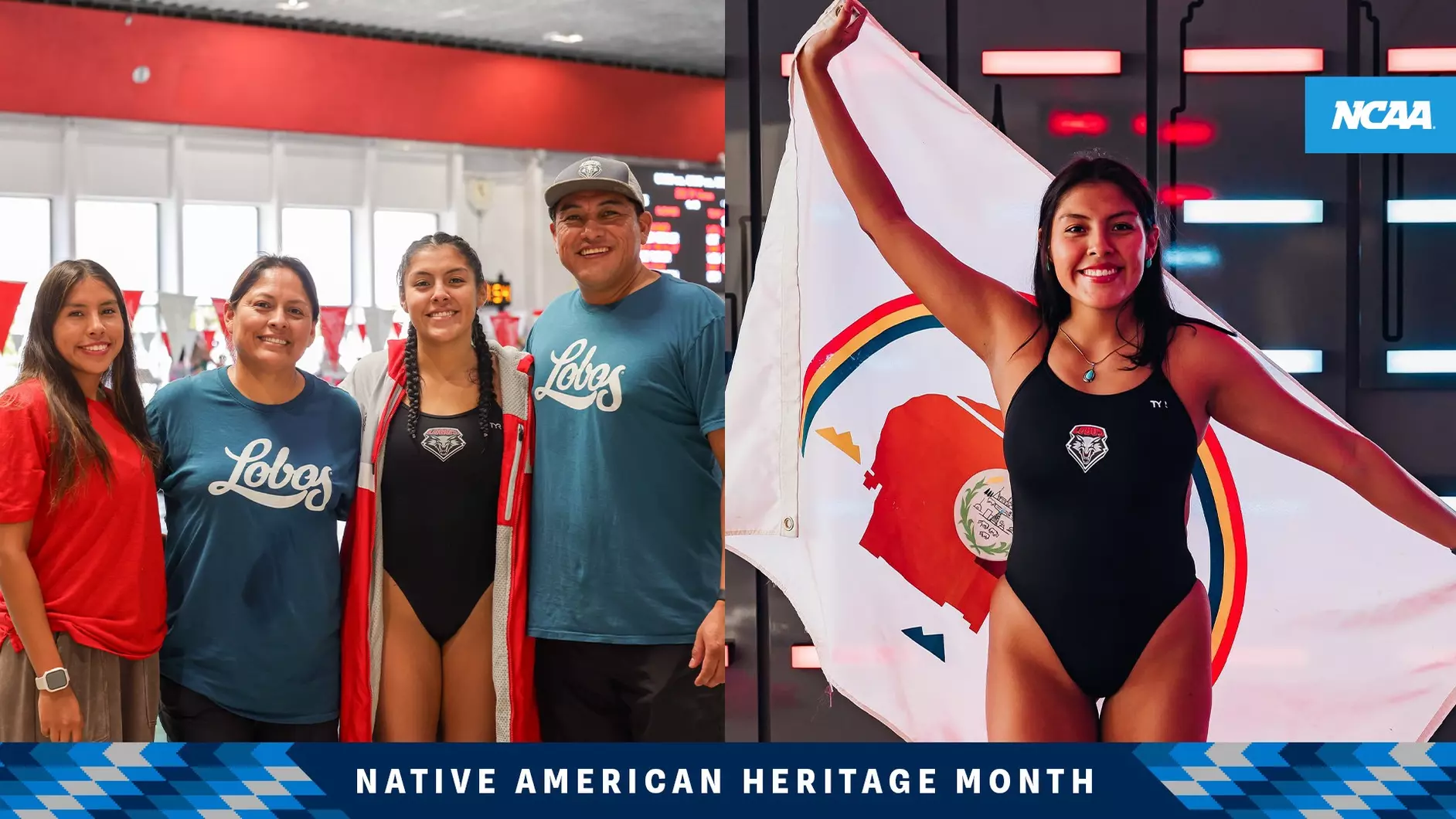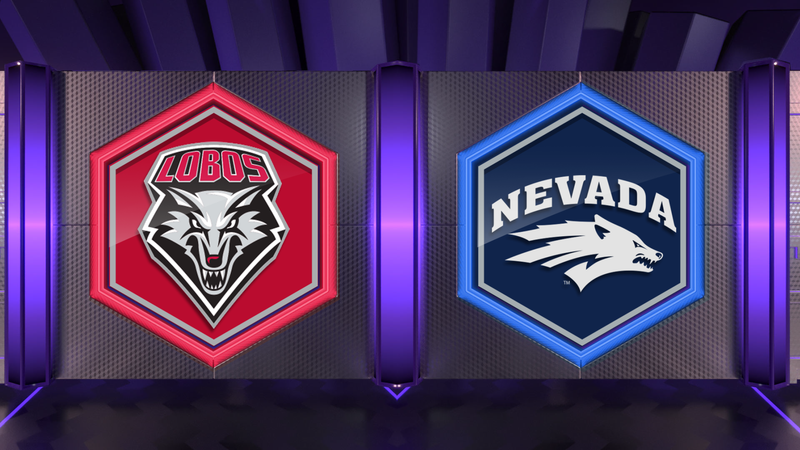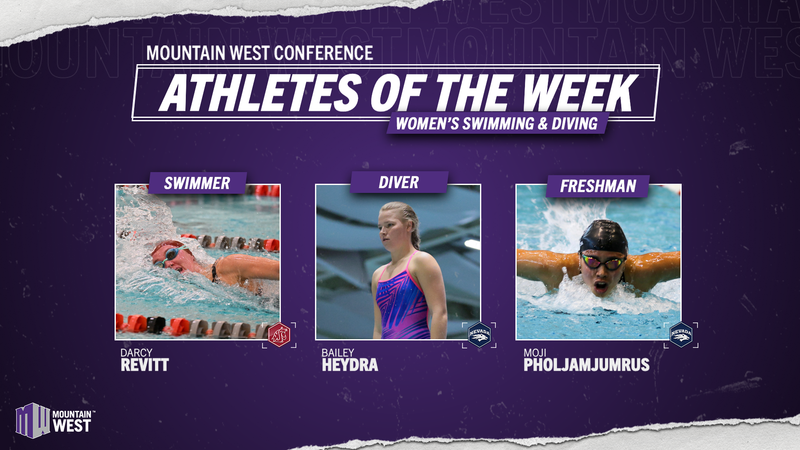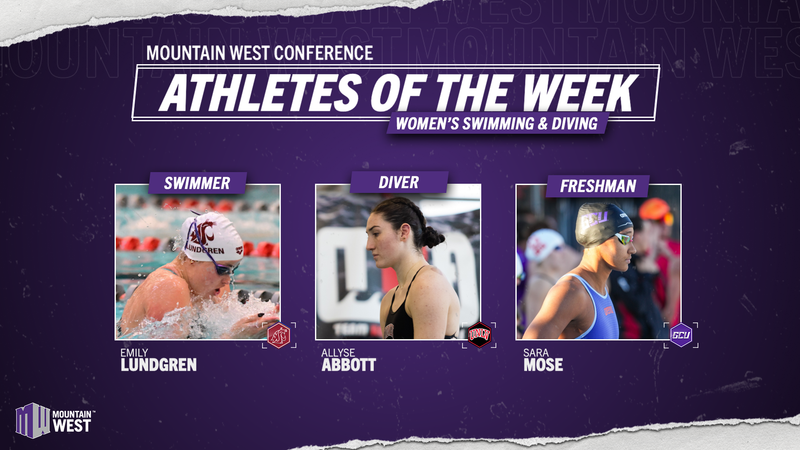Courtesy of NCAA –
University of New Mexico swimmer Kaylah Yazzie learned about preparation early in life.
While she was growing up, her parents prepared her for the realities of being a Native American in spaces where there would be very few people who looked like her.
The ceremonies of the Navajo, Comanche, and Sac and Fox tribes prepared her for resilience and strength.
Ultimately, this preparation served one goal: Be a positive representation of and for Native Americans.
“You’re setting the example to represent your people in that positive light so that when they come across a different Native American, or when they come across your community and your people, they treat them with respect,” her parents would tell her.
Representing her heritage means being exceptional, a standard that has led Yazzie to compete at a high level athletically, value her academics and even become a licensed pilot.

Yazzie’s father, Lamoni, was the first Native American Division I team captain in men’s basketball when he attended Air Force. Her mother, McResha, was a two-sport athlete in community college. Lamoni and McResha instilled the importance of representing Native American culture, while also pouring all of their love and support into Kaylah and her sister, Nanabah.
Growing up, Yazzie’s parents told her, “We’re going to give you all the resources. We’re going to do everything for you to be better than us, and that’s your job.”
“I was basically the leader of the family for a long period of time, and it was my job to make my (sister and cousins) better than me,” she said.
Yazzie’s parents also taught her that sports prepared her for life.
“They really believe that sports represent life in a way because you have your ups and you have your downs, and it shows you how to handle life.”
She began swimming when her father signed her up for an advanced swim class at a young age. She learned the four strokes, and she instantly fell in love.
“The water just felt like home. Every time I jumped in, the water was embracing me. The pressure on my hands and on my feet whenever you maneuver through the water is just something unreal. I love the quietness it brings to you.”
Swimming has given Yazzie great opportunities. In high school, she was the Canyon Athletic Association state champion for the 100-yard backstroke as a freshman and had a top eight finish in the 100 backstroke at the Arizona Interscholastic Association state championship as a senior. She spent a year as a redshirt on the Air Force swimming and diving team before transferring to New Mexico for the 2023-24 season. With the Lobos, Yazzie saw consistent progress her first year.

“Being in the water, I was always taught as a young kid that I chose a sport that really embraced who we are as Native American people,” she said. “I go every single day, and I swim in water. It’s Mother Water to us, and it’s very sacred.”
Yazzie’s family hails from multiple tribes — Comanche, Navajo, and Sac and Fox. Her tribes will often perform ceremonies, and these rituals have served as preparation for both her athletic career and her life.
“The biggest lessons that you learn from any ceremony, no matter what culture it is, they teach us preparation and preparing to take advantage of different opportunities that are given to us in life,” she said.
The long, grueling processes to prepare for ceremonies have taught Yazzie mental toughness and resilience.
“Cutting the wood, preparing the ground that you’re going to set up the teepee, it can take months of hard work just for you to have that one ceremony.”
Yet each part of the preparation is rooted in intentionality. She said everything has a purpose, from the rocks to the fire, to even the darkness of the night.
“You’re going through these ceremonies, and it’s long. It’s hard. You’re tired, and it’s all about being uncomfortable,” she said. “But you look around, and you know your family is there supporting you. Your community is there supporting you. You know you can do anything because they’re going through this with you — feeling that strength from them and pushing past your limits.”
The preparation for those ceremonies has also taught Yazzie invaluable lessons about athletics.
“When it’s early morning lifts or practices, when I’m in the pool and I don’t feel the best, or when I go into a competition, I definitely draw strength from those ceremonies,” she said. “Understanding that I’m not alone. Understanding what it takes to prepare my body to be a Division I athlete and how to execute.”

Outside of the pool, Yazzie earned her pilot’s license, being the first to do so not only in her family but in her Native American community. She is also one of only a few Division I Native American swimmers.
Serving as a positive representation can be a big weight, but Yazzie said it also is a privilege.
“This is what my ancestors laid down their weapons for, in order for us to be here,” she said. “And I think that’s the most beautiful part of it, is that there’s some tribes that aren’t here because they kept fighting. But my ancestors laid down their weapons for a thought and a prayer that I would be able to compete in different arenas.
“There is kind of a heavy weight on my shoulders, but I also take it with great stride and understand who I am representing, understanding my heritage, understanding what I was doing it for.”
Even though Yazzie is often one of the only Native Americans in the different spaces she occupies, her parents, her family and her culture have prepared her to know she belongs.
“I belong anywhere. I belong anywhere I am just because of who I am. I’m Native. Anywhere that I go in life, I’m of Mother Earth. I’m of Father Sky. All the elements around me, they protect me.
“Our people, we’ve gone through a lot in our lives, and we’ve had to overcome a lot of trials and tribulations. Ultimately, we overcame it. That gives us strength because we’re still here.”



